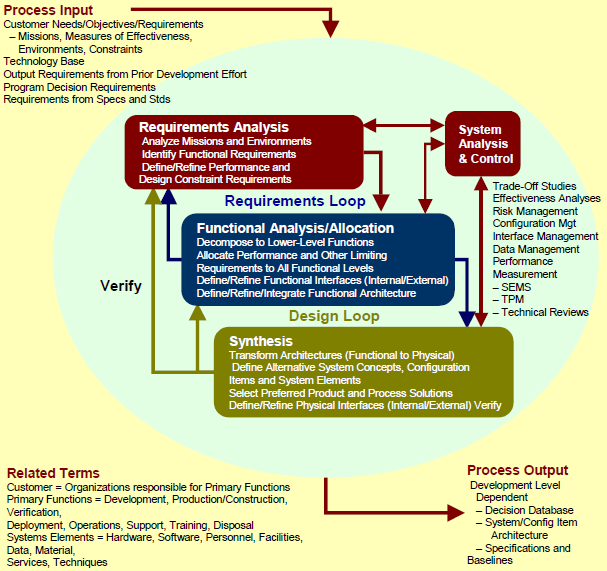Systems Engineering 8310
Abschnittsübersicht
-
Passwort für die Vorlesungsfolien: iccas
Vorlesungszeitraum 13.10.25 - 06.02.26 Konsultation 1
27.10.25, 16:00-17:00Uhr
Konsultation 2
08.12.25, 16:00-17:00Uhr
Konsultation 3
05.01.26, 16:00-17:00Uhr
Hier klicken, um an der Besprechung teilzunehmen Abgabe Belegarbeiten und Präsentationen
21.01.26, bis 23:59Uhr
Abgabe hier und per E-mail an thomas.neumuth@uni-leipzig.de
Vorträge
26.01.26, ab 9:00Uhr
Präsenz, Wächterstrasse 13
-
-
Intro, Grundbegriffe, Standards im SE-Umfeld
-
Intro, Systemmodelle als Basis des Systemdenkens, Betrachtungsweisen für Systemmodelle, Flexibilität von Systemen und Systemmodellen
-
Intro, Vom Groben zum Detail, Variantenbildung, Gliederung der Projektphasen als Makro-Logik, Problemlösungszyklus als Mikrologik
-
C10 Intro C11 Erfindung und Innovation C12 Kreativität und Methodik C13 Theorie der Problemlösung C14 Ressourcenanalyse -
C20 Intro C21 Widersprüche und Widerspruchsmatrix C22 Innovationsprinzipien C23 Separationsprinzipien -
C30 Intro C31 Funktionsanalyse C32 Feature-Transfer C33 Trimmen C34 Effeke und Effektdatenbanken C35 Stoff-Feld-Modelle C36 Innovationscheckliste C37 TRIZ-Ablaufplan -
C40 Einführung C41 Idealität von Systemen C42 Evolution technischer Systeme -
E SysML-Seminar
-
Please download the Visual Paradigm - Community Edition
https://www.visual-paradigm.com/download/community.jsp .
The software runs on different operational systems (Windows, Mac, Linux) - according to your request (Linux, Windows or MAC - Browser) the appropriate suggestion is made.. During the installation process you are forced to create an community account. Use your HTWK Mail for registration, then the Visual Paradigm Community Edition activation code will be send immediatly.
-
Die Prüfungsleistung besteht aus der Verfassung einer Belegarbeit (mehr dazu im Abschnitt D Belegarbeit) über ein ausgewähltes Thema und einer Präsentation. Beide Prüfungsleistungen werden in 2er-Gruppen abgelegt (auf Anfrage kann ein Thema auch alleine bearbeitet werden).
Die Belegarbeit und die Präsentationsfolien müssen hier im Moodle eingereicht und zusätzlich per E-mail an thomas.neumuth@uni-leipzig.de gesendet werden.
Eine Übersicht über wichtige Termine finden sie im Abschnitt Termine, die Einschreibung in die Belegarbeitsthemen und Präsentationszeitpunkt nachfolgend.
Bitte beachten sie D1 Organisatorisches der Belegarbeit.
-
Bitte schreiben Sie sich hier für ein Belegarbeitsthema ein. Jeweils maximal zwei Personen können sich für ein Thema einschreiben und die Themen sollten in 2er-Gruppen bearbeitet werden. Die Beschreibung der Themen finden Sie im Material Belegarbeitsthemen.
-
Termin
26.01.26, ab 9:00Uhr
Präsenz, Wächterstrasse 13
Pro Gruppe (2 Personen) gibt es einen Präsentationstermin.
Die Prüfung besteht aus einem Vortrag (10 min) und im Anschluss daran eine Fragerunde (5 min).
-
Einreichung der Belegarbeiten + Präsentationsfolien Aufgabe
Senden sie die Belegarbeiten und Präsentationsfolien zusätzlich per E-mail an thomas.neumuth@uni-leipzig.de
-

